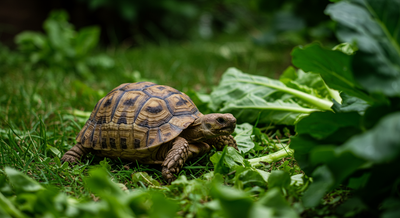As a proud owner of a bearded dragon, you may have wondered about their biting behavior. These fascinating reptiles are known for their calm and docile nature, but that doesn't mean they won't bite if provoked. In this comprehensive blog post, we'll explore the reasons why bearded dragons might bite, how to prevent it, and what to do if you find yourself on the receiving end of a bite.
Understanding Bearded Dragon Behavior
Bearded dragons are generally considered one of the most gentle and friendly lizard species. They are known for their ability to be handled and interact with their owners. However, it's important to remember that they are still wild animals with natural instincts. Bearded dragons may bite for a variety of reasons, including:
Feeling Threatened
Bearded dragons have a natural defense mechanism where they can puff out their "beard" to appear larger and more intimidating. This is often a warning sign that they feel threatened and may bite if the perceived threat persists.
Protecting Their Territory
Bearded dragons are territorial animals and may bite to defend their space, especially if they feel their basking spot or hiding place is being encroached upon.
Protecting Their Food
Bearded dragons are opportunistic feeders and may bite if they feel their food is being taken away or threatened.
Accidental Bites
Sometimes, bearded dragons may accidentally bite while trying to investigate a new object or person with their mouths.
Preventing Bearded Dragon Bites
Fortunately, there are several steps you can take to minimize the risk of your bearded dragon biting:
Proper Handling
Always approach your bearded dragon calmly and slowly, allowing them to see and smell you before attempting to pick them up. Support their entire body when handling them and avoid sudden movements.
Respect Their Space
Avoid disturbing your bearded dragon while they are sleeping, eating, or basking. Give them plenty of space and time to get used to new environments or people.
Provide Adequate Enrichment
Ensure your bearded dragon has a stimulating and comfortable environment with plenty of hiding spots, basking areas, and opportunities for exploration. Bored or stressed bearded dragons are more likely to bite.
Introduce New Items Slowly
If you're introducing a new toy, food, or other item into your bearded dragon's habitat, do so gradually and allow them to get used to it before interacting with it.
What to Do If Bitten
Despite your best efforts, there may be times when your bearded dragon does bite. If this happens, remain calm and follow these steps:
- Gently but firmly pull your hand away from the bite. Avoid jerking or yanking, as this can cause further injury.
- Clean the bite area with warm water and mild soap, and apply an antiseptic if necessary.
- Monitor the bite for any signs of infection, such as redness, swelling, or pus. Seek medical attention if you have any concerns.
- Reflect on what may have triggered the bite and make adjustments to your handling or environment to prevent future incidents.
Remember, bearded dragon bites are generally not serious, and with proper care and understanding, you can enjoy a safe and rewarding relationship with your scaly friend.
Conclusion
Bearded dragons are generally docile and friendly, but they can bite if they feel threatened or their space is being invaded. By understanding their behavior, handling them properly, and providing a comfortable environment, you can minimize the risk of bites and enjoy a harmonious relationship with your bearded dragon. With patience and care, you can build a strong bond with your pet and enjoy their unique personalities for years to come.





